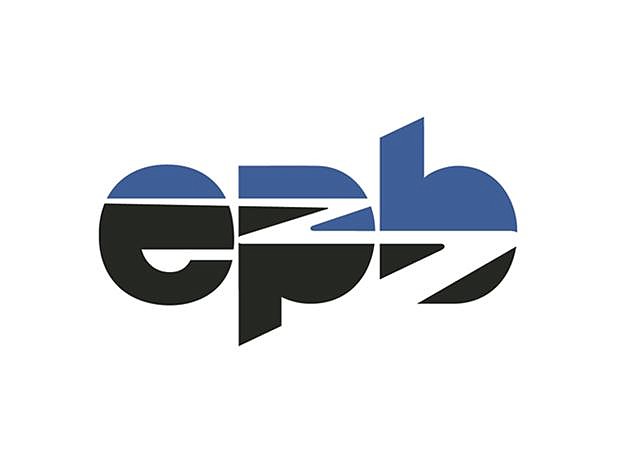EPB boasts the best-rated cable TV service in the country, but subscribers may be asked to pay more for the service next year.
Chattanooga's municipal power utility adopted a budget plan Friday that may require cable TV rates to go up in January. EPB managed to put off plans for a rate increase for its cable TV service earlier this year. But EPB CEO Harold DePriest told utility directors on Friday that he expects video rates will have to increase in 2017 to cover the higher program expenses charged to cable TV systems.
"We had actually planned to have a 3 percent rate increase (for video services) last year, but we were able to shift enough costs by changing where we bought the content to avoid that increase and we'll try to do the same thing next year," DePriest said. "But we're running out of channels to switch and we will have to look at some rate increase for our video services."
At this point, DePriest said EPB is looking at a 3 to 5 percent increase in its video rates in January. EPB directors must still review the budget later this year before deciding on any change in charges.
Although most cable TV providers raise their rates most years, EPB has had only two rate increases in its cable TV charges since the power utility expanded into telecommunications services in 2009.
EPB does not plan any increase in its Internet, telephone and its own portion of electricity rates during the next fiscal year, which begins July 1.
Since EPB entered the telecommunications business seven years ago, the city-owned utility has continued to add more video, internet and phone subscribers every year at an annual pace, on average, of more than 10,000 new subscribers a year. EPB also is generating $2 million a year in cable TV advertising and in call center, satellite and technical assistance it provides other utilities, including those in Jackson, Tenn., and Opelika, Ala.
DePriest said he predicts at least another year of significant subscriber growth for its telecom services, "but at some point it has to slow down because we're fishing in waters that have already been pretty well fished."
EPB surpassed Comcast as the biggest provider of cable TV service in EPB's footprint area several years ago, although Comcast still has more cable TV subscribers in the region due to its wider coverage area across much of Southeast Tennessee and Northwest Georgia.
EPB Chairman Joe Ferguson said he expects EPB to continue to gain customers, in part, because of EPB's commitment to customer service, as was recognized this week by Consumer Reports. The magazine said surveys of its subscribers identified EPB as the top-rated provider of pay TV and internet service in the country among 30 utilities included in the survey.
EPB pioneered the first community-wide 1-gigabit-per-second internet service in 2010 and boosted the speed up to 10 gigs last year - the fastest of any utility in America. EPB operates an around-the-clock call center to personally handle calls and has worked to try to accurately schedule installations and repairs.
Under the 2016-2017 budget adopted by the EPB board Friday, telecom revenues are projected to grow to nearly $127.5 million, up from $118.2 million budgeted this year.
The video, internet and phone service is projected to earn the utility $16.4 million next year, down slightly from the budgeted $17 million excess this year. As a government-owned utility, EPB uses such profits to pay down its debt and to help support its separate electric system.
EPB also projects its telephone business will grow from $17 million this year to $18 million next year. EPB projects a $5.5 million profit from this line of business.
EPB President David Wade said the EPB portion of electric rates would be 7 percent higher if the telecom and telephone system had not been added to help pay for the fiber optic upgrade for the smart grid. In addition to helping Chattanooga establish itself as "the Gig City" for web-based startup businesses, EPB's high-speed telecom business also helps cover EPB's administrative and overhead expenses for its power operations, EPB Chairman Joe Ferguson said.
"Ain't we glad we did it," Ferguson told his fellow board members Friday.
EPB's video and internet debt was once as high as $56 million, but that debt has been paid down to under $21 million through the earnings from the telecom operations. EPB's telecom debt is projected to be below $10 million a year from now due to continued strong results from the telecom division.
EPB's electric debt totals $297.9 million, financed over 30 years.
Although EPB's video, internet and phone business is growing, EPB electricity sales in the past year are running at the lowest level in seven years due to mild weather. Through the first 11 months of the current fiscal year, EPB power sales were down 1.6 percent from a year ago. The number of degree days in Chattanooga - a measure of how cold or hot the temperatures for power consumption - are down 18.1 percent this year over last, cutting demand for electric heat and cooling.
Meanwhile, storm-related expenses have doubled in recent years from the historic norm of about $2 million a year, DePriest said. EPB earned only $163,000 in net income on its electricity in fiscal 2015 and expects to end this year with a net income of about $4.5 million.
EPB raised electricity rates last July by 3.5 percent, but the utility has no plans for a power rate increase this year.
But 80 percent of EPB's power revenues are paid to the Tennessee Valley Authority, which could adopt a modest electric rate increase this summer for TVA's fiscal year starting Oct. 1. TVA's wholesale rates flow through to consumers and TVA also adjusts its rates each month to reflect changes in the cost of fuel.
Contact Dave Flessner at dflessner@timesfreepress.com
